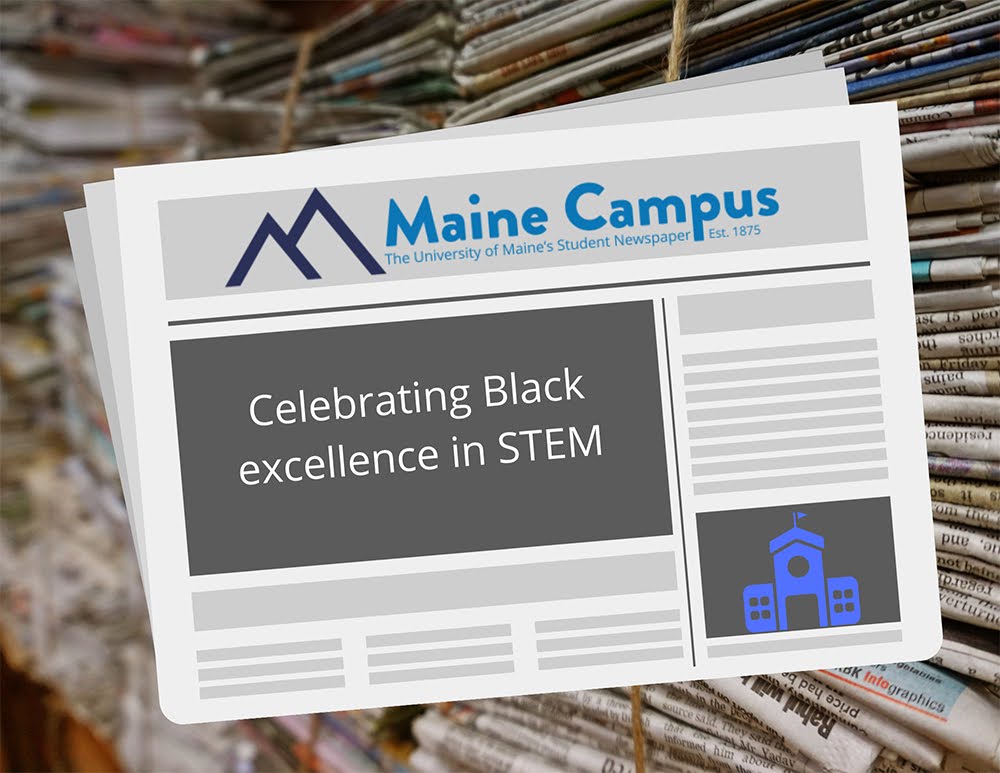February in the United States marks the celebration of Black History Month. Initially conceived by Dr. Carter G. Woodson, who founded what is now the Association for the Study of African American Life and History in 1915. Originally, he introduced the idea for the first week of February to be dedicated to the observance of African Americans’ contributions to the history of the United States and world in February 1926. Now celebrated all throughout February, Black History Month is an opportunity to illuminate the often overlooked contributions to society made by Black Americans. This month at the Maine Campus, we will be honoring Black History Month by lifting up the experiences and accomplishments of Black Mainers. This week’s focus is on the fields of science, technology, engineering and math (STEM).
In May of last year, the University of Maine changed the name of Williams Hall from Little Hall to recognize Beryl Elizabeth Warner Williams, UMaine’s first Black graduate to earn a degree in mathematics. Born in Bangor, Maine, Williams made great strides in her field of mathematics education, becoming the dean of the Center for Continuing Education at Morgan State University––the first woman at the university to receive such an appointment. Additionally, she remained active in numerous community efforts, including the National Association for the Advancement of Colored People (NAACP), the American Association of University Women and the Women’s International League for Peace and Freedom, before her death in 1999.
However, celebration of Black excellence should not stop with the past, especially with so many great marks on the world being made by members of Maine’s communities today. The broad recognition of such accomplishments are crucial for inspiring future visionaries, especially in STEM fields, where, due to inequity and social factors, Black academics, researchers and inventors are chronically underrepresented.
Marisa Litz, who graduated from UMaine in 2005 with a bachelor’s in marine science, now leads the Coast Ecology and Life Cycle Monitoring Unit focused on Pacific salmon and steelhead at the Washington Department of Fish and Wildlife. Litz is also outspoken about her experiences as a woman of color in STEM and is an advocate for diversity and inclusion in the field of oceanography. In her work with Pacific salmon, Litz’s expertise has lent her the foresight to recognize the importance of incorporating western science and traditional Indigenous knowledge, with the aim to improve the contemporary structure of salmon management.
Dr. Joyce Taylor Gibson is another Maine resident making strides and is rapidly approaching her one-year anniversary of being inducted into the Maine Women’s Hall of Fame. Gibson has dedicated over thirty years toward helping secure opportunities for others to achieve upward mobility through education.
“[She is] one of the strongest and most passionate advocates for women’s advancement and equality that [I have] had the pleasure of working beside,” Glenn Cummings, the president of the University of Southern Maine, said about Gibson.
Having grown up in Mississippi during the Civil Rights era, Gibson has honed her experience into extraordinary leadership skills that have paved the way for the involvement of other women in higher education, particularly in the areas of STEM, by advocating for the recruitment, retention and promotion of female faculty members.
Throughout Maine, and the rest of the country, Black Americans’ intellect and efforts have solidified an invaluable role in the advancement of STEM. From revolutionizing research to advocating for ethical considerations in fields like medicine and climate change, Black communities deserve full credit for producing pioneers that have pushed toward creating a better future for all of us.




